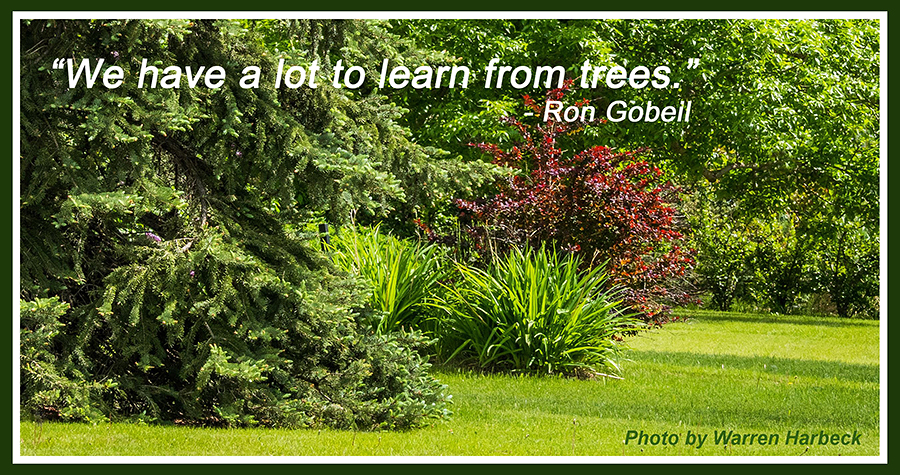
Arboreal wisdom and moralityCOFFEE WITH WARREN, with Warren Harbeck |

|
Last week’s column on a Tale of Two Trees sure drew some inspiring responses from our readers. In particular about the wisdom we can learn from trees, Ron Gobeil, Vancouver Island writer/commentator, wrote about what a tree symbolizes for him:
RON’S WORDS REMIND ME of the wisdom the late Stoney Nakoda Chief Walking Buffalo (George McLean) was famous for. He delighted in sharing his experiences of “Nature’s University.” (See my June 20, 2019 column.) One of my earliest mentors in the Stoney Nakoda culture and language, the globetrotting goodwill ambassador would often point to the wisdom of trees as a lesson in the key Stoney Nakoda values of ahopabi, “respect,” and wazin îchinabi, “oneness”: “Consider all the different kinds of trees there are in the forest,” he’d say. “But they don’t fight with each other. They get along together just fine; they live in harmony.” Well, when I consider a lesson I’m learning at Nature’s University this very month, I realize that the trees are very dependent for their life together on one critically important shared experience: water. And no rain, no water in Alberta and British Columbia forests presently being ravaged by wildfires. The importance of water for trees’ life together got me thinking about an upcoming conference in Cochrane that speaks to the importance of a shared experience humanity is dependent on. On Wednesday evening, May 31, 6:30–8:30, at Cochrane RancheHouse, the Ahmadiyya Muslim Jamaat will be hosting its 12th Annual World Religions Conference. The topic: “Can Morality Exist without God?” Panelists include: Tina Fox Poucette, Aboriginal perspective; Daniel Kohm, Baha’i perspective; Dr. Scott MacDonald, Christian perspective; Nathan Klassen, Humanist perspective; and Atta ul Wahab, Islamic perspective. Town Councillor Tara McFadden will serve as moderator. I have my own opinion on this timely topic, and it’s certainly influenced by the necessity and source of water for the life of trees: Eternal Love rains down showers of love on humanity, called to bear fruits of love. But I’m looking forward to hearing the opinions of the panelists on the topic, too. It will be good to see you there – a great topic for our ongoing coffee chats together.
© 2023 Warren Harbeck |